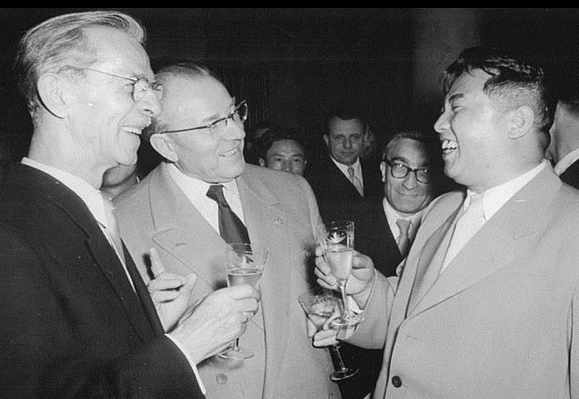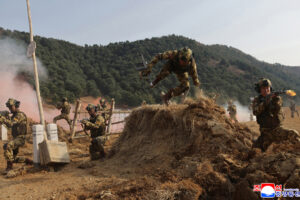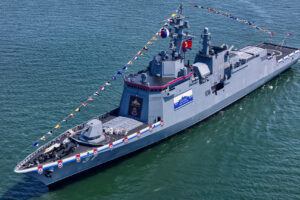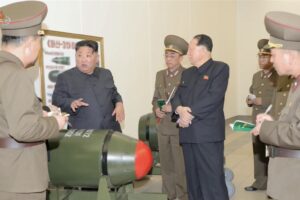In the late 1950s, North Korea was changing. Before that, it was just another “people’s democracy,” a minor country of the Communist Bloc where decision-making was largely dominated by Soviet supervisors, always ready to micro-manage the country. In the late 1940s nobody in the know was surprised when Stalin personally found time to edit the draft of the 1948 North Korean constitution, or when the Soviet Politburo sent a cable informing Kim Il Sung that he was “allowed” to make public the existence of the North Korean armed forces and hold a parade (the number of troops to take part in the parade was also clearly specified in the cable).
However, such arrangements did not really suit Kim Il Sung. First, he was a sincere nationalist, with ingrained suspicion of the foreign control. Second, he was an ambitious and smart politician, and he knew that, unlike most Eastern European communist leaders of the era, he enjoyed massive local support. Unlike his Polish or Hungarian peers, Kim Il Sung did not feel that he needed the Soviets to keep him in power.
In the late 1950s, North Korea was changing. Before that, it was just another “people’s democracy,” a minor country of the Communist Bloc where decision-making was largely dominated by Soviet supervisors, always ready to micro-manage the country. In the late 1940s nobody in the know was surprised when Stalin personally found time to edit the draft of the 1948 North Korean constitution, or when the Soviet Politburo sent a cable informing Kim Il Sung that he was “allowed” to make public the existence of the North Korean armed forces and hold a parade (the number of troops to take part in the parade was also clearly specified in the cable).
However, such arrangements did not really suit Kim Il Sung. First, he was a sincere nationalist, with ingrained suspicion of the foreign control. Second, he was an ambitious and smart politician, and he knew that, unlike most Eastern European communist leaders of the era, he enjoyed massive local support. Unlike his Polish or Hungarian peers, Kim Il Sung did not feel that he needed the Soviets to keep him in power.
Try unlimited access
Only $1 for four weeks
-
Unlimited access to all of NK News: reporting, investigations, analysis
-
Year-one discount if you continue past $1 trial period
-
The NK News Daily Update, an email newsletter to keep you in the loop
-
Searchable archive of all content, photo galleries, special columns
-
Contact NK News reporters with tips or requests for reporting
Get unlimited access to all NK News content, including original reporting, investigations, and analyses by our team of DPRK experts.
Subscribe
now
All major cards accepted. No commitments – you can cancel any time.











